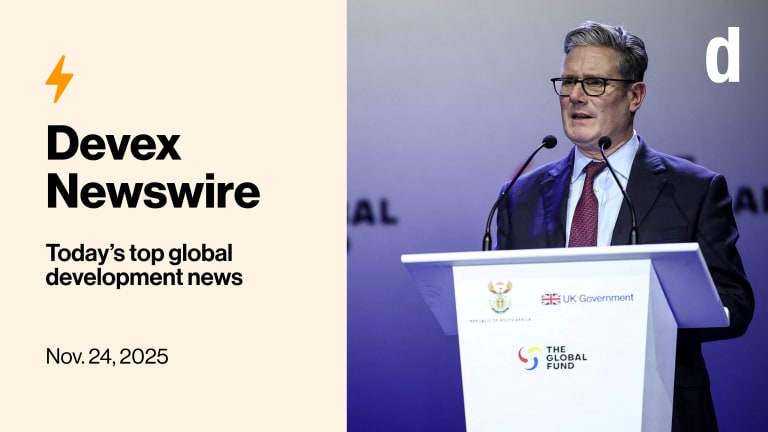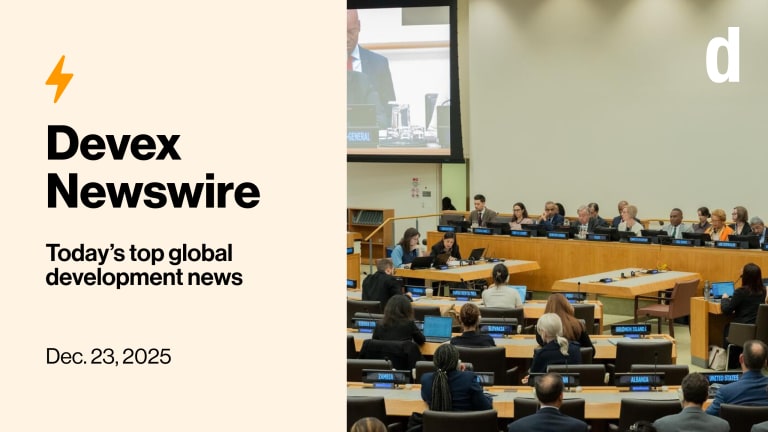The European Union is planning to roll out a series of “flagship” initiatives in the coming years to tackle cross-cutting global development challenges. Funding for smaller, less sustainable projects may decrease as a result, officials tell Devex in an exclusive look at the ongoing negotiations.
An initial set of flagships is expected to be finalized sometime next year by the European Commission’s Directorate General for Development Cooperation in consultation with members of the European Parliament and other EU departments. Implementation will fall under the regional bloc’s new financial framework, which was finalized last week and spans the years 2014 to 2020.
These flagships will focus on cross-cutting challenges in international development – the creation of green jobs, migrant workers’ rights or the intersection of animal and human health, for instance. The goal is to avoid a silo mentality and instead pursue holistic solutions through cross-sector partnerships especially with large multilateral partners.
This story is forDevex Promembers
Unlock this story now with a 15-day free trial of Devex Pro.
With a Devex Pro subscription you'll get access to deeper analysis and exclusive insights from our reporters and analysts.
Start my free trialRequest a group subscription







